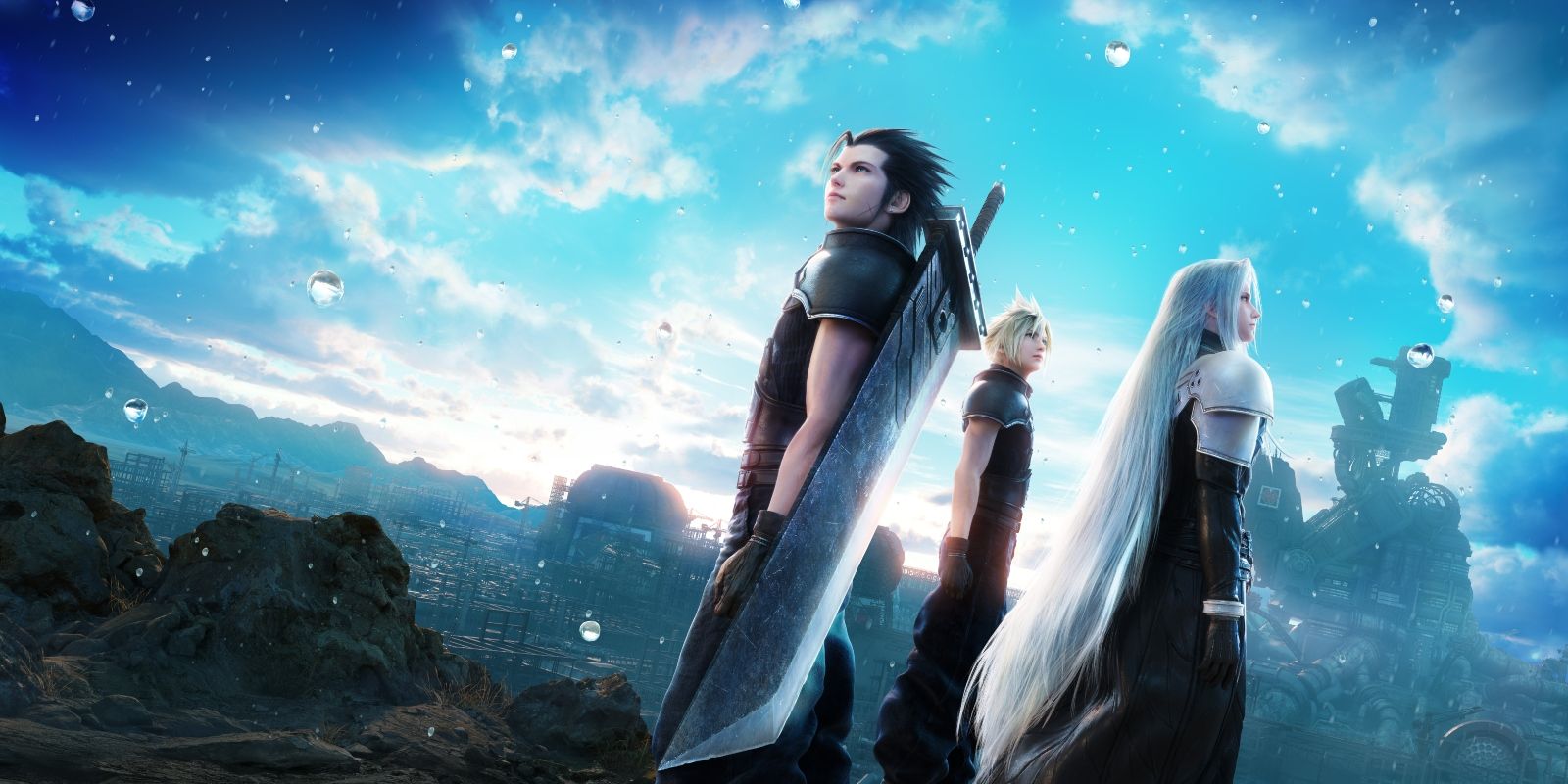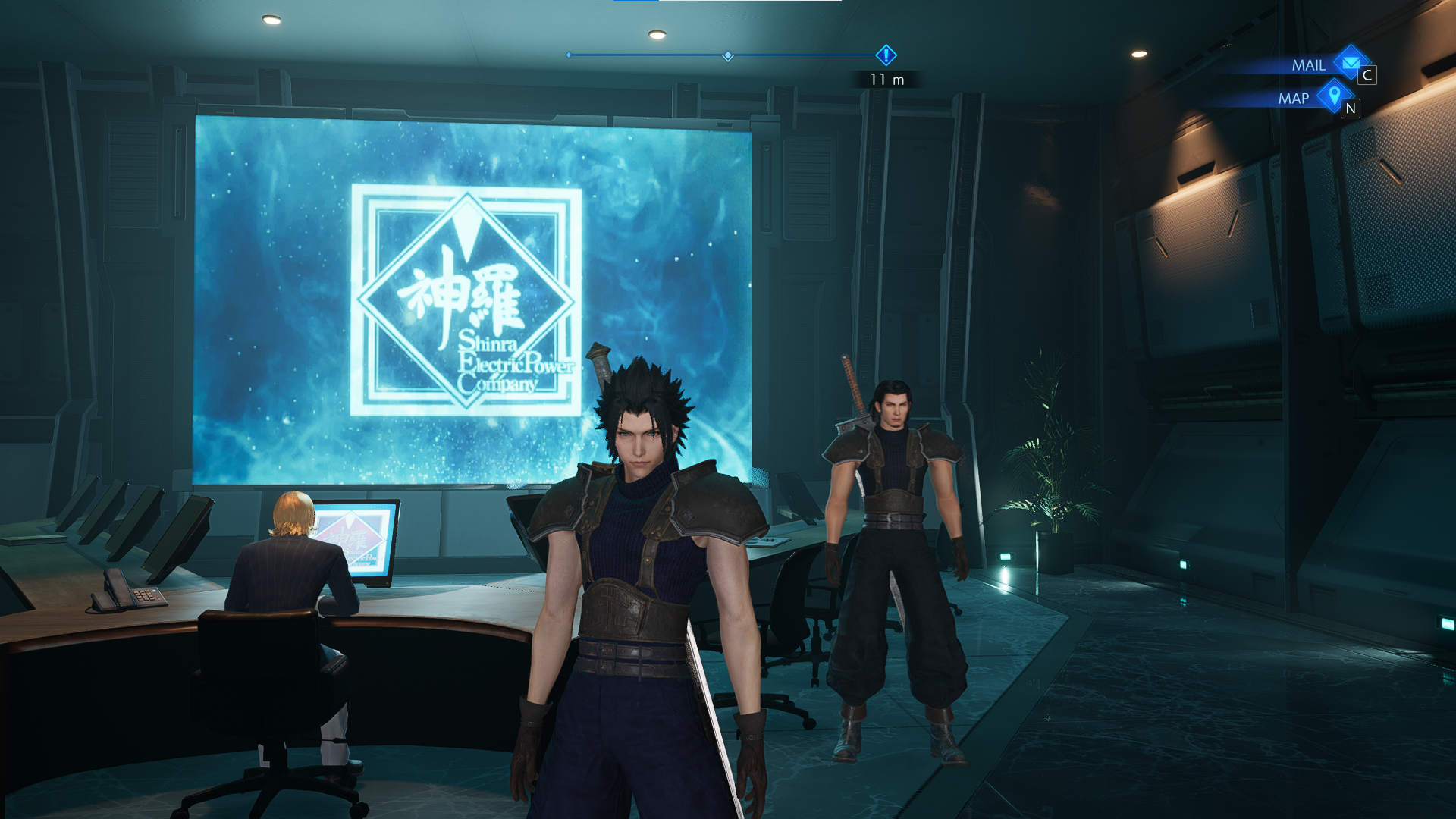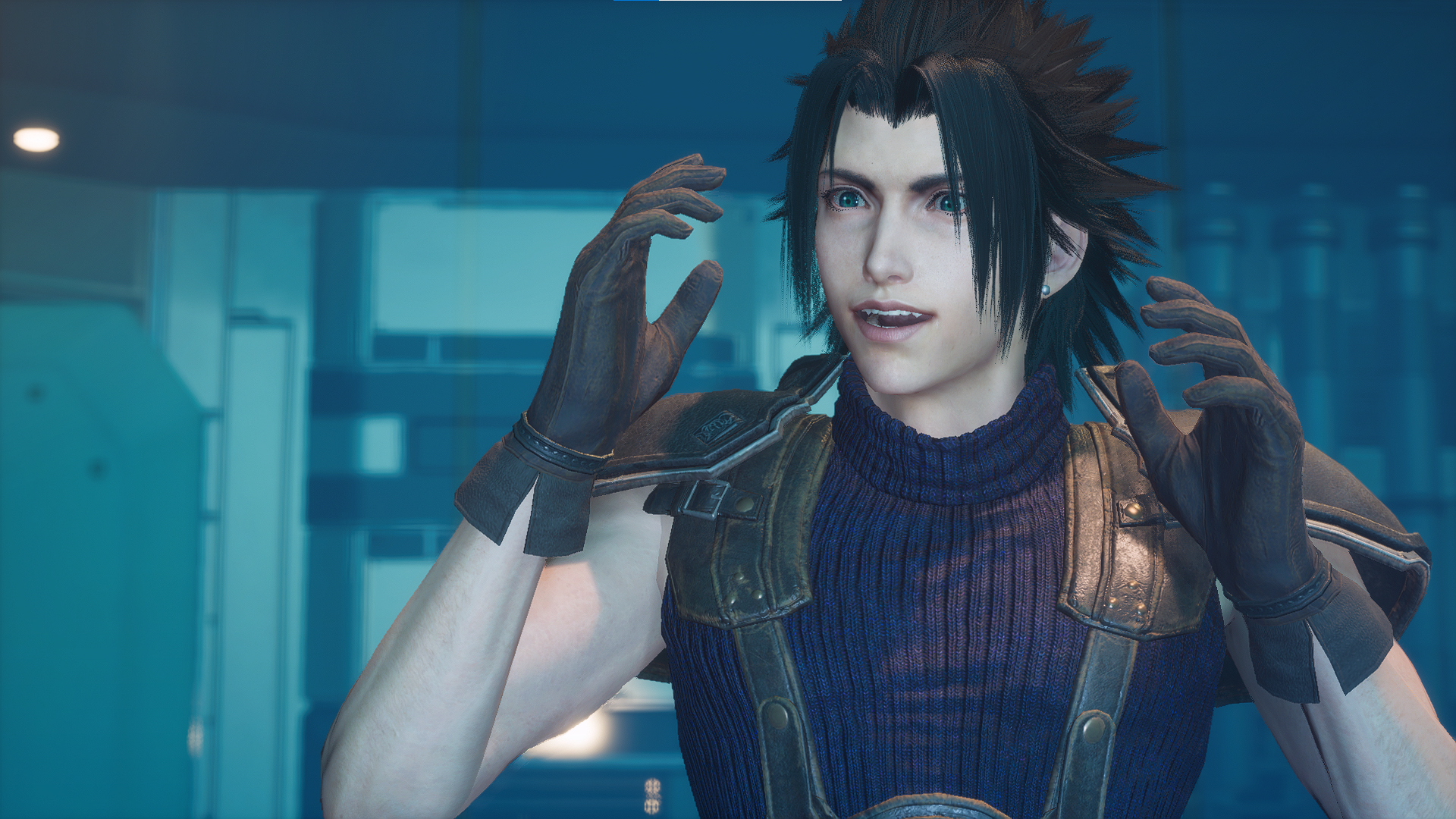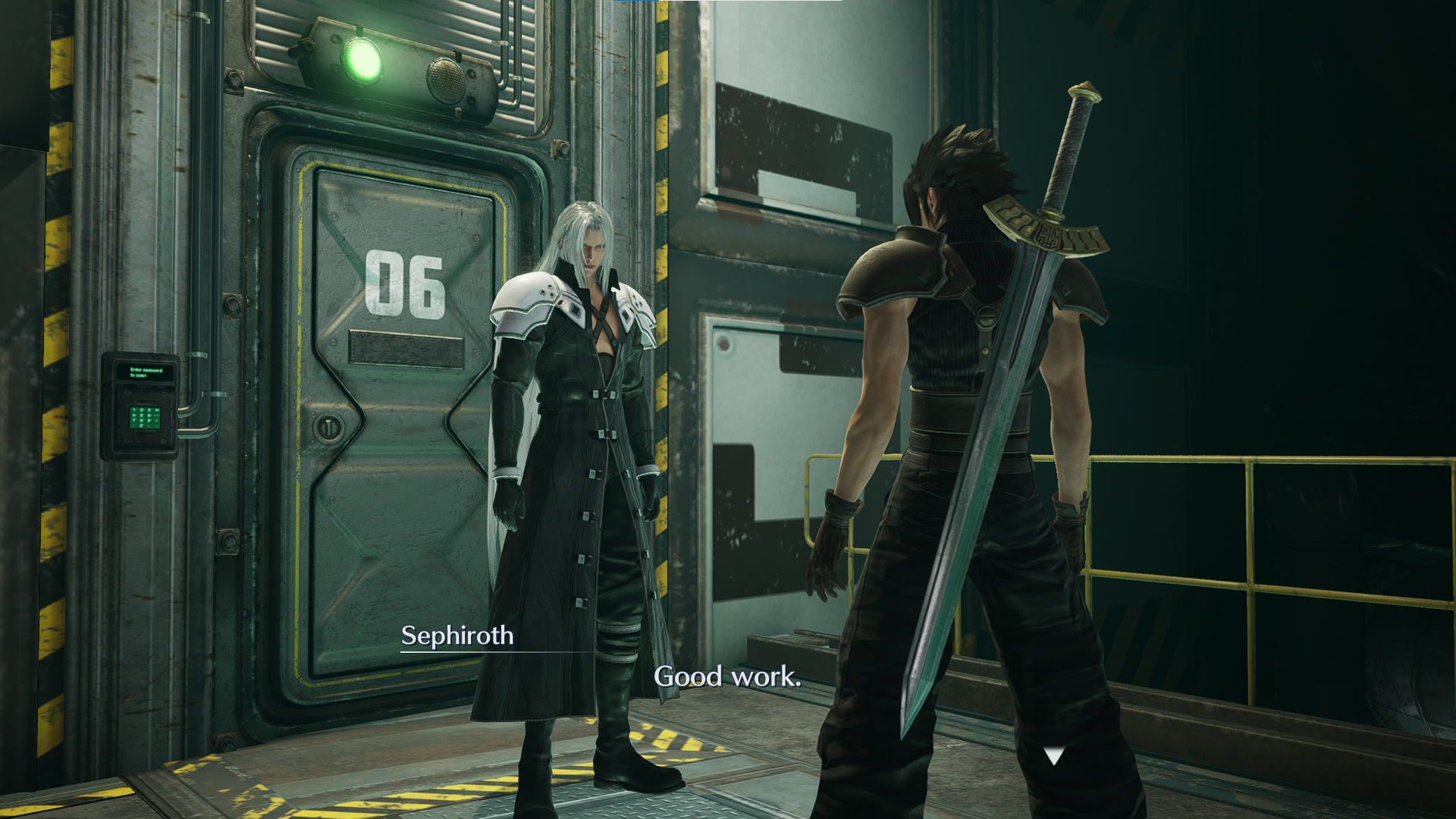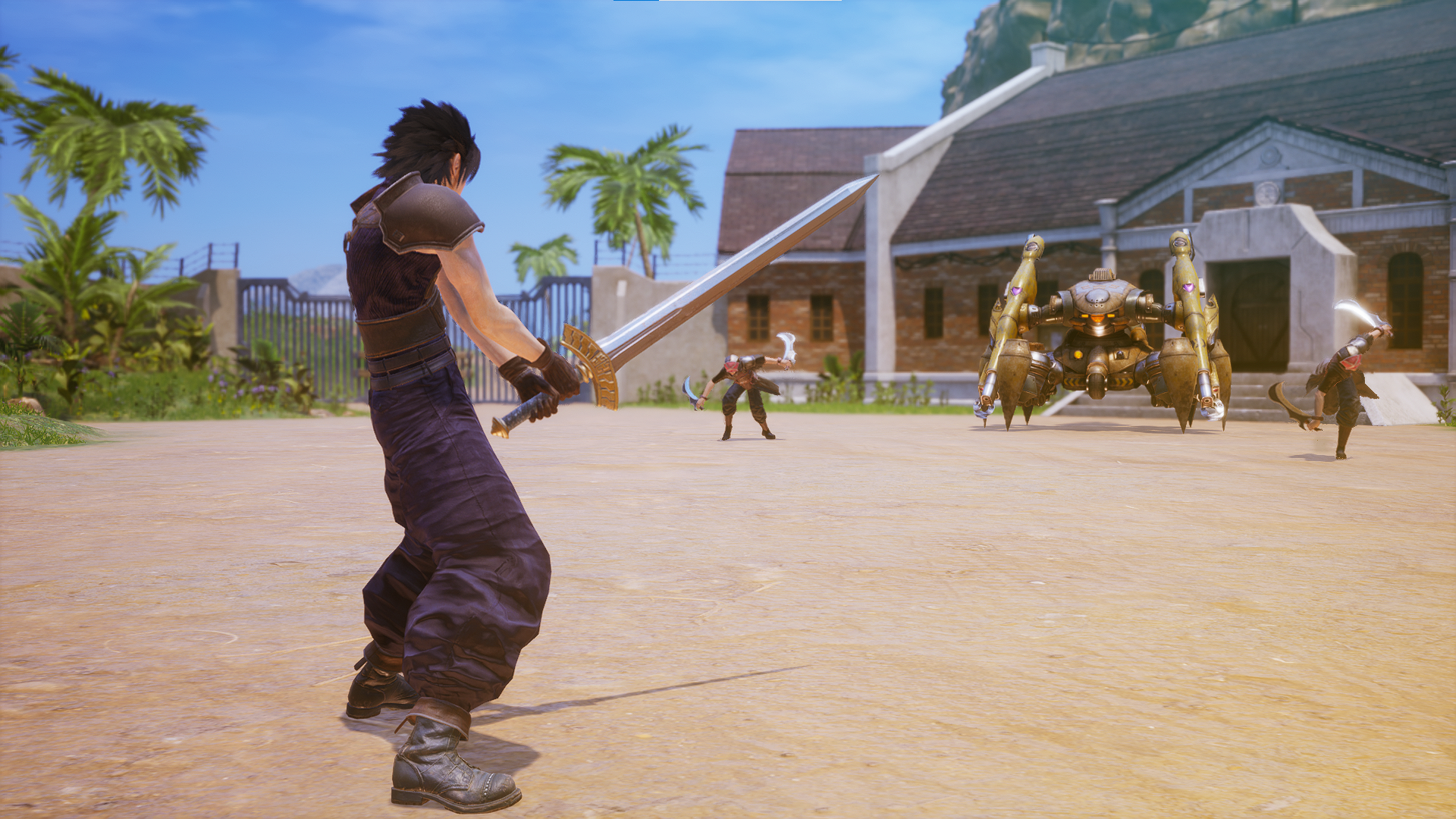In December 2022, a video game from 2007 will be released. That game is Crisis Core: Final Fantasy VII, a cult-classic PlayStation Portable prequel to the wildly beloved Final Fantasy VII. This is not an uncommon occurrence in the modern gaming landscape, when remakes and remasters drop on modern consoles nearly every day, but in Crisis Core -Final Fantasy VII- Reunion, the dissonance of playing a 15-year-old game that seems so new is ever-present.
Crisis Core Reunion, with all its gorgeously reorchestrated music and full voice acting, sounds like a new game. With HD graphics and its improved frame rate (up to a blisteringly fast 120 FPS on PC), it looks like a new game. The improved combat system, in brief moments, is even enough to convince you that it feels like a new game. Make no mistake, though -- dig just beneath the surface, and at its foundation, this is still a PSP game from 2007.
Take, for example, character animations. On the PSP, it was difficult to make out characters' faces. The screen was very small, and the system wasn't powerful enough to render particularly impressive facial expressions. Because of this, a lot of characters in narrative-heavy games like Crisis Core express their emotions most visibly with their bodies. In Reunion, character faces are significantly more detailed, but they're no more expressive than they were before. Why? Because, at its heart, Crisis Core Reunion is still Crisis Core.
There are tons of areas where Reunion butts up against the original game. Why aren't side-quests integrated into the world, instead relegated to a level select screen? Because that was the easiest way to do it on the PSP. Why is the dialogue just a little stilted across the board? Because the original game's somewhat clumsy localization hasn't been updated. Why do pre-rendered cutscenes look like they've been smeared with Vaseline? Because they are the exact same cutscenes used on the PSP's SD screen.
All of that might sound like an insult, but it really isn't. Crisis Core Reunion feels old, but "old" is not the same as "bad." A lot of the game's more dated design choices feel downright refreshing now -- how many games of today feature stealth missions where you have to do squats to stay alive? As AAA games keep getting bigger and more same-y, it's actually quite nice to play a game that feels this humble and idiosyncratic. In my preview for Crisis Core Reunion, I noted that the game feels stuck in the past. That's still true, but as I spent more time with Reunion, it became clear that being stuck in the past was secretly its greatest strength. As it turns out, a 15-year-old game in a prettied-up package is the ideal remedy for a stagnating contemporary medium.
The story of Crisis Core is also as engaging now as it was back then, introducing striking new depth to the world of Final Fantasy VII. SOLDIER was always more of an abstract concept than an actual organization in that original game, but new protagonist Zack Fair actually navigates SOLDIER as a structure made up of real people, and it gives Final Fantasy VII new layers of emotional complexity. Zack himself, little more than a plot device in the original game, is now a well-realized and incredibly likable character. It's the rare prequel that provides depth to the original instead of making it more shallow.
Of course, Crisis Core is not free from the shackles of fan service. For every moment of intimacy that serves to humanize Sephiroth, there's a drawn-out plot line surrounding the origins of the Buster Sword (Crisis Core really counts on the idea that somebody cares about where Cloud got the weakest sword in FFVII). These moments of distracting fan service don't define the game, but they do interrupt and drag down an otherwise well-realized addition to the Final Fantasy VII franchise. It's the difference between enhancing the world and gesturing at the things the player already likes.
It bears repeating that Reunion really is a great way to experience Crisis Core. I played it on PC, and that 120 FPS was buttery smooth and perfectly stable, matching nicely with the game's new HD models -- the game shoots for a more humble 60 FPS on PlayStation 5 and Xbox Series X|S, and 30 FPS on last-gen consoles plus Nintendo Switch, but I didn't have the chance to try it on those platforms. The new musical arrangements are also a treat. Crisis Core's music, composed by Takeharu Ishimoto, was already excellent, and now, reorchestrated and freed from the PSP's tinny speakers, it sounds even better.
The shining star of this package, though, is Crisis Core Reunion's reworked combat. The Digital Mind Wave, a constantly-spinning slot machine that alters gameplay, originally stopped Crisis Core's combat in its tracks whenever it did something notable, but now, it quietly spins in the corner and lets the action continue undeterred. It's no longer a mind-numbingly boring distraction from combat, but a charming complement to the action.
That uninterrupted action is smoother than ever, too -- Reunion offers a much cleaner control scheme that makes action feel absolutely seamless. Combat isn't as complex as it is in Final Fantasy VII Remake, but it might be even more satisfying.
Not every change on display here is strictly positive, though. The English dub version of Reunion recasts every character in an effort to bring it in line with Final Fantasy VII Remake and the upcoming Final Fantasy VII Rebirth, and the result is a mixed bag. The most obvious downgrade here is Zack's voice. At one point, Zack's mentor, Angeal, describes him as a "puppy dog," and that appears to be the one note voice actor Caleb Pierce took to heart.
Zack almost always sounds like a golden retriever dressed as a SOLDIER, and while that's initially very charming, once the story begins to reveal some of its inevitably tragic twists, it becomes clear that Pierce just can't keep up the same way original VA Rick Gomez could, robbing some otherwise deeply emotional moments of their impact. Most of the other voice actors do excellent work here -- Cody Christian's Cloud and Briana White's Aerith are as great here as they were in Final Fantasy VII Remake -- but it can, at times, feel a little difficult to connect with Zack when his emotional range feels so limited.
The other big change that doesn't always work is Crisis Core Reunion's user interface. Everything here has been prettied up to bring it in-line with FFVII Remake, but it's one of the few areas where it feels like Crisis Core has lost a bit of its charm. The original UI looked a lot like a mid-'00s web browser, but now, it just kind of looks like a menu from a video game, which is especially distracting during the many sequences that involve checking Zack's email.
Obviously, this is an extraordinarily minor gripe, and one that ultimately comes down to a matter of taste. Crisis Core Reunion's UI is unobtrusive and fine, but it does feel a little bland in the context of this specific game, which is at its best when it feels like a special delivery from 2007.
For the most part, Crisis Core -Final Fantasy VII- Reunion is a pleasant trip down memory lane. Even if you never played the original on PSP, you'll recognize a lot of the bizarre design quirks of the mid-2000s action game, and Reunion offers a nice way to revisit those quirks without being bogged down by the clumsy combat of the original title. With Zack Fair poised to play a larger role in the upcoming FFVII Rebirth, Crisis Core will likely be required reading for FFVII fans, and Reunion is the best way to experience it.

